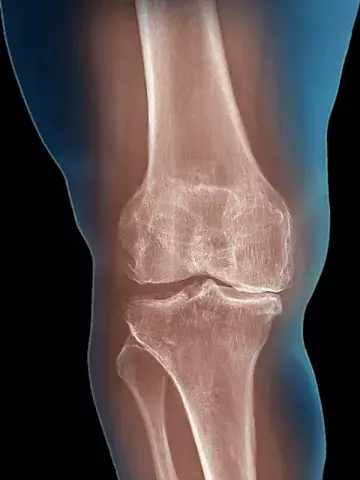Study links asthma and atopic dermatitis to risk of osteoarthritis
By Rebecca Jenkins
Patients with atopic disease have an increased incidence of osteoarthritis (OA), research finds, suggesting therapies targeting allergic pathways could treat or prevent OA.
Previous evidence pointed to mast cell activation and allergic pathways having potential roles in OA pathogenesis, researchers wrote in the Annals of Rheumatic Diseases, but it was unknown whether OA incidence was increased in patients with atopic diseases.
To answer this, they conducted a retrospective cohort study using US administrative health claims data comparing OA incidence in 117,346 patients exposed to atopic disease against 1,247,196 matched nonexposed patients.
After propensity score matching, patients with asthma or atopic dermatitis had a 58% increased risk of developing OA compared with nonexposed patients (26.9 vs 19.1 per 1000 person-years).
The effect was even more pronounced in patients with both asthma and atopic dermatitis, who had a 115% increased risk compared with nonexposed patients.
Researchers were able to replicate the results using another electronic health dataset, which also included BMI data, finding a 42% increased risk of OA in patients with asthma or atopic dermatitis versus nonexposed patients.
‘Our findings provide further support for the concept that allergic pathways may contribute to the development of OA. If this is indeed true, nonatopic patients may also benefit from the use of treatments that inhibit mast cells and allergic cytokines to treat or prevent OA,’ they concluded.
Professor Flavia Cicuttini, Head of the Musculoskeletal Unit at School of Public Health and Preventive Medicine at Monash University, Melbourne, said the study was hypothesis- generating, but cautioned the findings, while interesting, had to be assessed against the study’s limitations.
‘These include that this is a retrospective study using claims data, and there may be residual or unmeasured confounders,’ she told Medicine Today.
In addition, the researchers did not have data on the severity of atopic disease or OA or information about over-the-counter treatments for the conditions.
Professor Cicuttini, who is also Head of Rheumatology at Alfred Hospital, Melbourne, said cohort studies would be needed to confirm that those with mast cell activation and allergic cytokines were at increased risk of OA, and in which joints, or whether the increased risk was simply due to low grade inflammation.
‘There is a lot of interesting research going on in OA and this is one such study. However, best practice for OA management remains to be active and manage your weight ... most importantly preventing the slow kilo creep that happens from midlife,’ she said.


